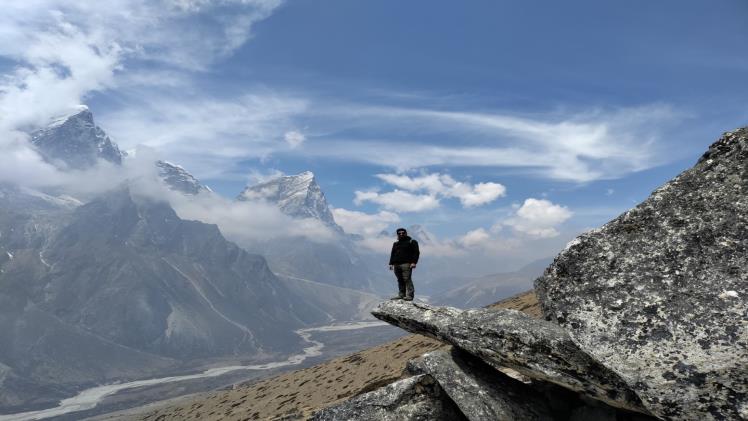10 Ultimate Solo Travel Tips

Traveling alone is one of the most empowering experiences you can give yourself. It’s a journey of self-discovery, independence, and adventure that allows you to explore the world on your own terms. Whether you’re wandering through the bustling streets of Tokyo, trekking in the Himalayas, or relaxing on a Mediterranean beach, solo travel can be both exhilarating and intimidating.
Many first-time solo travelers worry about safety, loneliness, or simply not knowing how to make the most of the experience. But with the right mindset and preparation, solo travel becomes a liberating adventure that enriches you in ways few other experiences can.
In this blog, we’ll dive into 10 ultimate solo travel tips, each explained in detail, to help you feel confident, safe, and inspired as you set off on your next solo journey.
1. Plan, but Don’t Overplan
One of the biggest advantages of solo travel is flexibility. You don’t need to negotiate with companions about where to go or what to do—you are entirely in charge of your own itinerary. That said, having no plan at all can leave you vulnerable to stress or wasted time.
The key is to strike a balance. Do your research before your trip. Know the basics: where you’ll stay your first night, how to get from the airport to your accommodation, and key safety information about the area. Book your first few nights in advance, especially if you’re arriving late in the evening.
But resist the urge to fill every minute of your schedule. Solo travel thrives on spontaneity. Leave room for discoveries—a café you stumble upon, a conversation with a local that leads you to a hidden spot, or simply time to rest when you feel like it. By planning lightly, you reduce stress but keep your journey open to serendipity.
2. Pack Smart and Light
When you’re traveling solo, there’s no one else to help carry your bags. That means packing light isn’t just convenient—it’s essential. Choose versatile clothing that can be layered, reused, and adapted to different settings. Stick to a color palette that allows items to mix and match easily.
For example, if you’re trekking to Everest Base Camp, packing smart can make or break your experience. You’ll be hiking for hours each day at high altitude, often in changing weather conditions. Carrying a lightweight, layered wardrobe—thermal base layers, a fleece, a down jacket, and a waterproof shell—keeps you warm without overburdening you. The same philosophy applies globally: versatile clothing that can be reused and adapted is your best friend.
Always pack a portable charger, a universal adapter, and a small first-aid kit. For safety, consider bringing a doorstop alarm or a portable lock for extra security in hostels or guesthouses. A cross-body bag or anti-theft backpack is also a good investment.
Remember, packing light gives you freedom. You’ll move more easily through airports, public transport, and city streets. And most importantly, you’ll feel less weighed down—physically and mentally.
3. Prioritize Safety Without Sacrificing Adventure
Safety is one of the top concerns for solo travelers, and rightly so. While the world is generally more welcoming than threatening, being cautious helps ensure your trip is smooth and enjoyable.
Start by sharing your itinerary with a trusted friend or family member, along with copies of important documents like your passport and insurance details. Check in regularly, even if it’s just a quick text.
On the ground, trust your instincts. If a situation or place feels unsafe, don’t hesitate to leave. Avoid walking alone late at night in unfamiliar areas, and be mindful of your alcohol consumption. When using ride-hailing apps or taxis, double-check the license plate and driver details before getting in.
But safety doesn’t mean you need to live in fear. Solo travel is about pushing boundaries. Take calculated risks—try that new food, hike that trail, join that local tour. The key is being prepared and aware so that your adventures stay positive.
4. Choose Accommodations That Suit Solo Travelers
Where you stay can make or break your solo travel experience. Hostels are often the first choice for solo travelers because they’re affordable and social. Many hostels now offer private rooms alongside dorms, giving you the best of both worlds—privacy when you need it, and social opportunities when you want them.
Guesthouses, boutique hotels, and even homestays can also be excellent options. Look for accommodations with good reviews from other solo travelers, particularly regarding safety and cleanliness. Platforms like Hostelworld, Booking.com, and Airbnb allow you to filter by these preferences.
When choosing a place, consider location. Being centrally located might cost a little more, but it often feels safer and saves time on transport. Plus, it makes it easier to explore by foot, which is one of the best ways to connect with a destination.
5. Learn Basic Local Phrases and Customs
Communication goes a long way in building connections and ensuring smoother travel. Learning just a few key phrases like “hello,” “thank you,” and “help” in the local language can transform your interactions. Locals often appreciate the effort, even if your pronunciation isn’t perfect.
Understanding basic customs is equally important. In some cultures, tipping is expected; in others, it may be considered rude. Dress codes may vary significantly, especially near religious sites. Small gestures like removing your shoes before entering a home or using your right hand for eating can show respect and earn goodwill.
Not only does this effort make you a more responsible traveler, but it also enhances your solo journey by creating deeper cultural connections.
6. Connect With Other Travelers
One of the myths about solo travel is that you’ll always feel lonely. In reality, it often makes you more approachable. People are more likely to start a conversation with someone who’s alone than with a group.
Stay in social accommodations like hostels, join walking tours, or sign up for group activities like cooking classes or hiking excursions. Platforms like Meetup, Couchsurfing, and Facebook travel groups are great for connecting with fellow travelers.
Of course, balance is key. Sometimes you’ll crave company, while other times you’ll relish your solitude. Solo travel lets you choose. And the friendships you make along the way, often brief but meaningful, can enrich your journey in ways you never expected.
7. Budget Wisely and Have a Backup
When traveling alone, all costs fall on you—there’s no one to split taxis, meals, or hotel rooms with. That makes budgeting especially important.
Set a daily spending estimate based on your destination, and use apps to track your expenses. Always have access to backup funds, whether that’s an extra credit card stored separately from your wallet or a stash of emergency cash in a hidden pocket.
Solo travel also means you may spend a little extra on safety and comfort. For instance, you might opt for a taxi over a late-night bus or choose a slightly more expensive hotel in a safe area. Consider these not as splurges but as smart investments in your well-being.
8. Embrace Flexibility and Spontaneity
One of the greatest joys of solo travel is the freedom to follow your own path. You don’t need to compromise with anyone else’s preferences—you can linger in a café all afternoon, change cities at the last minute, or decide to skip a sight that doesn’t interest you.
Embracing spontaneity often leads to the most memorable experiences. Perhaps a fellow traveler invites you on a side trip, or you discover a local festival happening nearby. Solo travel allows you to say yes without hesitation.
That said, flexibility doesn’t mean recklessness. Always factor in safety and logistics before making spontaneous decisions. With a mindful balance, you’ll find that the unplanned moments often become the highlights of your trip.
9. Document Your Journey
Traveling solo gives you the unique opportunity to reflect and document your experiences more deeply. Keep a travel journal where you record not just what you did but also how you felt. Take photos, of course, but also consider short videos or voice notes.
These records become priceless memories. On tough days, reflecting on your journal can also remind you why you embarked on the journey. And sharing your experiences—through a blog, social media, or just with close friends—can inspire others to embrace solo travel too.
At the same time, don’t get too caught up in documenting everything. Remember to put the camera down and simply be present. The balance of living the moment while capturing it is what makes solo travel so enriching.
10. Trust Yourself and Enjoy the Freedom
Perhaps the most important tip of all is to trust yourself. Solo travel is a test of independence, but it’s also a celebration of it. You’ll face challenges—missed buses, language barriers, moments of uncertainty—but you’ll also discover how capable you are. Each hurdle you overcome builds resilience and confidence.
Solo travel is about more than just seeing new places. It’s about learning to enjoy your own company, to find comfort in solitude, and to make decisions that are entirely yours. The freedom of waking up each morning with no one else’s agenda but your own is empowering in ways that are hard to describe.
So embrace it fully. Say yes to new experiences. Trust your instincts. Allow yourself to wander, to wonder, and to grow. Solo travel isn’t always easy, but it is always worth it.
Final Thoughts
Solo travel is one of the most rewarding ways to see the world. By planning smartly, staying safe, and keeping an open heart, you can turn potential challenges into opportunities for growth and adventure. These ten tips—plan but stay flexible, pack light, prioritize safety, choose the right accommodation, learn local customs, connect with others, budget wisely, embrace spontaneity, document your journey, and trust yourself—will help you navigate the journey with confidence.
Every solo trip is a story waiting to be written, filled with unique encounters and discoveries. Whether you’re setting off for your first adventure or you’re a seasoned traveler, remember that solo travel is as much about the inner journey as the outer one. And that’s what makes it so unforgettable.





